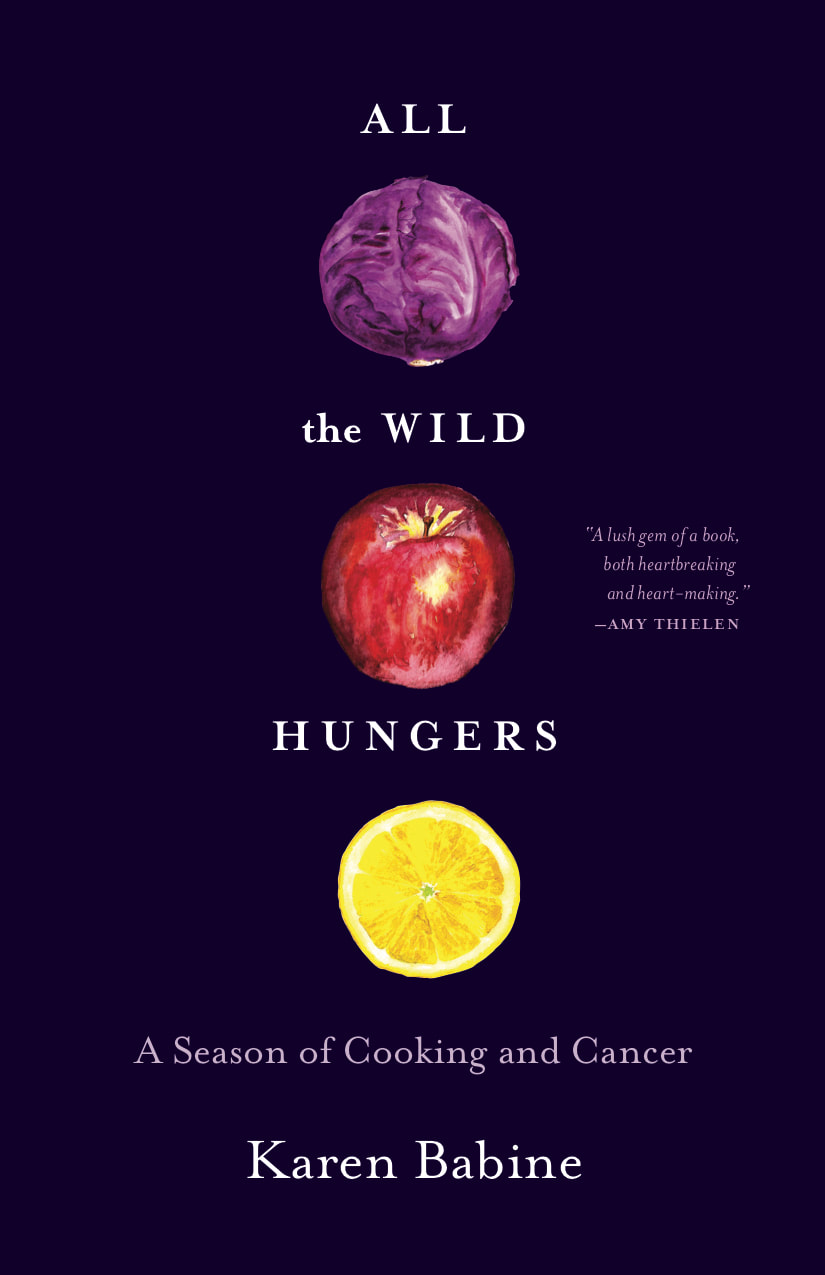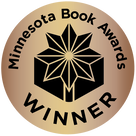All the Wild Hungers: A Season of Cooking and Cancer
Milkweed Editions, 2019
|
“My sister is pregnant with a Lemon this week, Week 14, and this is amusing. My mother's uterine tumor, the size of a cabbage, is Week 30, and this is terrifying.”
When her mother is diagnosed with a rare form of cancer, Karen Babine―a cook, collector of thrifted vintage cast iron, and fiercely devoted daughter, sister, and aunt―can’t help but wonder: feed a fever, starve a cold, but what do we do for cancer? And so she commits herself to preparing her mother anything she will eat, a vegetarian diving headfirst into the unfamiliar world of bone broth and pot roast. In these essays, Babine ponders the intimate connections between food, family, and illness. What draws us toward food metaphors to describe disease? What is the power of language, of naming, in a medical culture where patients are too often made invisible? How do we seek meaning where none is to be found―and can we create it from scratch? And how, Babine asks as she bakes cookies with her small niece and nephew, does a family create its own food culture across generations? Generous and bittersweet, All the Wild Hungers is an affecting chronicle of one family’s experience of illness and of a writer's culinary attempt to make sense of the inexplicable. |
|
Praise for All the Wild Hungers
"Achingly sad and incredibly beautiful, Karen Babine’s All the Wild Hungers is a welcoming invitation to dinner, family, and laughter, evoking a warm, full kitchen and good company." -Foreword Reviews "Reading this quiet book should provide the sort of balm for those in similar circumstances that writing it must have for the author." -Kirkus Reviews "Babine’s writing brims with tenderness—for her family, her home, and the food she prepares—warming readers’ hearts." -Publisher's Weekly "In the end, the overriding hunger referred to in this lovely book’s title is the hunger for life. Perhaps it is never stronger than in the shadow of death, and in the light of death’s opposite, love. Praise, sympathy and thanks to Babine, who has given us this ode, lament and meditation." -Minneapolis Star Tribune "Karen Babine writes the way she cooks: with a fierce and stubborn tenderness, with passion and precision, savoring each nuance and detail." -Brevity "Karen Babine’s essay collection All the Wild Hungers will make you hungry, startle you with beauty, and break your heart. " -Colorado Review "Babine exudes a passion that is inseparable from action, an inability to make sense of the conundrums of cancer, and, in this instance, a long sentence that can barely contain all her emotion." -"The Enduring Appeal of Cancer Lit," Los Angeles Review of Books "Babine has a deft touch with language and the ability to convey complex feelings with clarity. She evokes depth of feeling without being dramatic. I wanted to read parts of the book to a loved one the way a kid wants to show a friend her skinned knee. Don’t touch where it hurts/but this is where it hurts." -Atticus Review "Written in 64 vignettes, readers may initially think the book will be an easy read. They would be wrong. The bursts of text allow Babine to take focused plunges into living with her mother’s cancer recovery, each time from a different poignant angle. Much like someone working through intense physical therapy to achieve a seemingly impossible task, Babine navigates muscles and nerves to craft moments into manageable bites layered with significance regarding the bones of the matter. " -Split Rock Review |
Interviews
Foreword Reviews Face Off with Katie Asher
"'All the Wild Hungers' is a Deft Culinary Tour of Life, Death, and Lefse" with James Norton, The Growler
Eat Your Words with Cathy Erway
How a cancer diagnosis helped this Minneapolis author find her love of cooking," with Erica Rivera, City Pages
Sweet Connections
Foreword Reviews Face Off with Katie Asher
"'All the Wild Hungers' is a Deft Culinary Tour of Life, Death, and Lefse" with James Norton, The Growler
Eat Your Words with Cathy Erway
How a cancer diagnosis helped this Minneapolis author find her love of cooking," with Erica Rivera, City Pages
Sweet Connections


